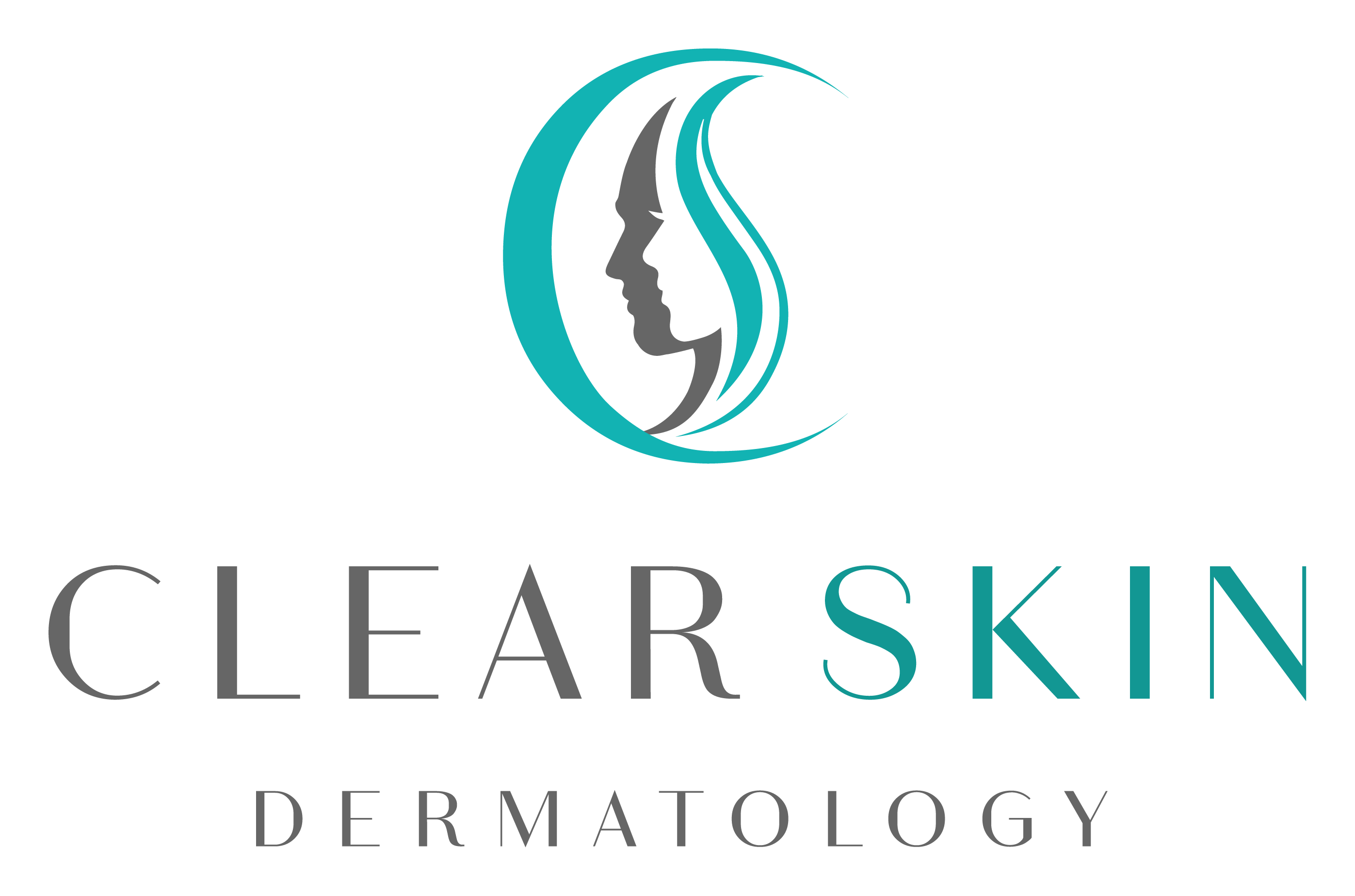Skin cancer screening at Clear Skin Dermatology is vital for the early detection and treatment of basal cell carcinoma, squamous cell carcinoma, and melanoma. Skin cancer is highly treatable at the earliest stages, so you must report any suspicious growth. Led by Dr. Epstein, our team provides thorough screenings to identify and treat skin cancer at the earliest stage possible.
Signs & symptoms of
different types of skin cancer
Skin cancer is the abnormal growth of skin cells, often caused by overexposure to ultraviolet (UV) radiation from the sun or tanning beds. The three main types are basal cell carcinoma, squamous cell carcinoma, and melanoma. Basal and squamous cell carcinomas are more common and less aggressive, while melanoma is rarer but more dangerous.

Basal cell carcinoma (BCC)
Basal cell carcinoma is the most common type of skin cancer, accounting for approximately 80% of all cases. It typically develops on sun-exposed areas of the skin, such as the face and neck. BCC grows slowly and rarely spreads to other parts of the body, but if left untreated, it can cause significant damage. Common signs and symptoms of BCC include:
- A pearly or waxy bump on the face, ears, or neck
- A flat, flesh-colored, or brown scar-like lesion
- A pink growth with an elevated, rolled edge and a central indentation
- A red, scaly patch of skin that may crust or bleed
- A white, waxy, scar-like area without a defined border
- Visible blood vessels in or around the lesion
- A sore that bleeds, oozes, or crusts and remains open for weeks
Squamous cell carcinoma (SCC)
Squamous cell carcinoma represents about 20% of skin cancer cases. It also occurs primarily on sun-exposed skin but can develop on any part of the body, including inside the mouth. SCC is more aggressive than BCC and can spread to lymph nodes and other organs if not treated promptly. Common signs and symptoms of SCC include:
- A firm, red nodule on sun-exposed areas like the face, ears, neck, lips, or hands
- A flat sore with a scaly crust
- A new sore or raised area on an old scar or ulcer
- A rough, scaly patch on the lip that may evolve into an open sore
- A red, raised patch or wart-like sore inside the mouth
- A sore or rough patch on the genital area
- A growth that itches, burns, or causes discomfort
Melanoma
Melanoma is the least common but most dangerous type of skin cancer, responsible for around 1% of skin cancer cases yet causing the majority of skin cancer deaths. It can occur anywhere on the body, often starting as a mole. Early-stage melanomas are highly treatable, but once they spread, treatment becomes more challenging. Signs and symptoms of melanoma include:
- A large brownish spot with darker speckles
- A mole that changes in color, size, or feel or that bleeds
- A small lesion with an irregular border and portions that appear red, white, blue, or blue-black
- A painful lesion that itches or burns
- Dark lesions on the palms, soles, fingertips, or toes
- Dark lesions on mucous membranes lining the mouth, nose, vagina, or anus
- A mole that looks significantly different from others (the “ugly duckling” sign)
- The appearance of a new mole during adulthood
If you experience any of these signs or symptoms, it is important to seek evaluation from our board-certified dermatologists promptly.

Your skin cancer screening experience
When you come in for a skin cancer screening, your dermatologist will discuss your medical history, any symptoms you’ve noticed, and your risk factors for skin cancer. After the initial consultation, there are two primary ways to diagnose skin cancer:
- Skin Examination: Your dermatologist will perform a full-body skin examination, checking for any unusual moles, spots, or lesions. This thorough inspection includes areas not typically exposed to the sun, such as the scalp, between the toes, and under the nails. Your dermatologist will use a dermatoscope to examine any suspicious areas more closely.
- Biopsy of Suspicious Areas: If your dermatologist identifies any concerning spots, they may recommend a biopsy. This involves taking a small sample of the suspicious tissue for further analysis. The biopsy is usually done under local anesthesia, and the sample is sent to a lab to determine if cancer cells are present. The results will help determine the next steps.
Once the examination and biopsies are complete, your dermatologist will discuss the findings with you. If no cancer is detected, you’ll be advised on how to monitor your skin and when to schedule your next screening. If cancer is found, your dermatologist will explain the diagnosis, treatment options, and the necessary follow-up care to ensure the best possible outcome.
Skin cancer screening FAQs
Who should get a skin cancer screening?
Anyone can benefit from a skin cancer screening, but it is especially important for individuals with risk factors such as a history of sunburns, excessive sun exposure, use of tanning beds, a family history of skin cancer, fair skin, or numerous moles. People over the age of 50 should also consider regular skin cancer screenings.
How often should I get a skin cancer screening?
The frequency of skin cancer screenings depends on your risk factors. For most people, an annual screening is recommended. However, if you have a history of skin cancer or other significant risk factors, your dermatologist may recommend more frequent screenings.
What should I do if I find a suspicious mole or spot on my skin?
If you notice any new or changing moles, spots, or lesions on your skin, it is important to schedule a consultation with a dermatologist as soon as possible. Early detection and treatment are crucial for the best outcomes in skin cancer.

Achieve and maintain clear
and healthy skin in Clearwater, FL
Clear Skin Dermatology is a full-service, state-of-the-art, physician-owned and operated practice dedicated to providing top-notch dermatological care. Our board-certified providers, including Dr. Rachel Epstein, offer personalized treatments and comprehensive skin cancer screenings. If you notice any suspicious signs or symptoms, schedule a consultation with us for prompt diagnosis. We are committed to helping you achieve and maintain clear, healthy skin.

